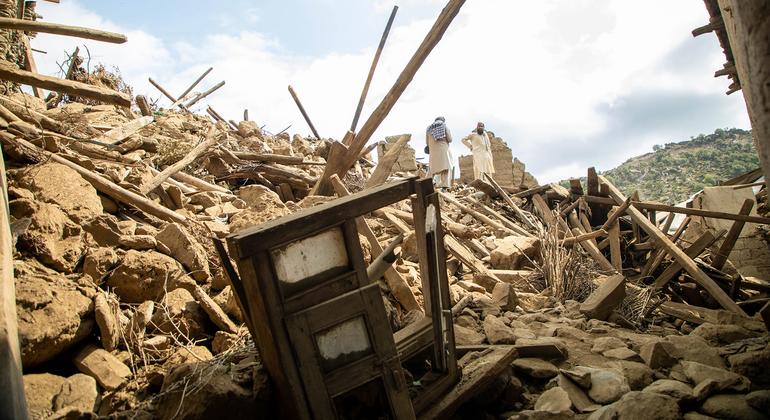Sure! Here’s the translation:
—
The earthquake in Afghanistan has caused unprecedented devastation, affecting hundreds of thousands of people in remote regions already struggling with the aftermath of years of conflict. The UN has reported that over 2,200 people have lost their lives and more than 3,640 have been injured following the 6.0 magnitude quake, with the provinces of Kunar and Nangarhar being the hardest hit. In these areas, at least 6,750 homes have been destroyed, leaving many families homeless.
Tom Fletcher, the UN’s Emergency Relief Coordinator, has warned about the severe cost of funding cuts to humanitarian aid, which have paralyzed essential health and nutrition services. Additionally, the lack of resources has hindered the operation of crucial aircraft for isolated communities and forced many aid agencies to reduce their presence in the country. However, following a $10 million disbursement from the Department of Humanitarian Affairs, UN teams have begun to respond to the crisis.
The situation is further complicated by aftershocks from the earthquake, which have increased anxiety among survivors. Many are in temporary camps with limited resources and are facing severe emotional trauma, such as insomnia and acute stress, exacerbated by a shortage of mental health professionals. Women, moreover, face additional difficulties in accessing medical care, as many require the company of a male guardian to travel, further restricting their access to necessary services.
The conditions in the temporary shelters are alarming, with a high risk of epidemic outbreaks. Cases of acute watery diarrhea, dengue, and malaria have been reported, putting additional strain on an already fragile healthcare system. Currently, there are only four operational hospitals in the most affected areas, one of which has treated 895 injured patients since the disaster began.
The World Health Organization (WHO) has intensified its response by deploying mobile medical teams in remote areas, offering consultations and maternal and child healthcare. However, the WHO is facing a critical funding shortfall of at least $4 million, threatening the continuity of these vital activities. In light of this alarming situation, the organization has made an urgent call to the international community to strengthen its support.
—
Let me know if you need anything else!
Source: MiMub in Spanish










